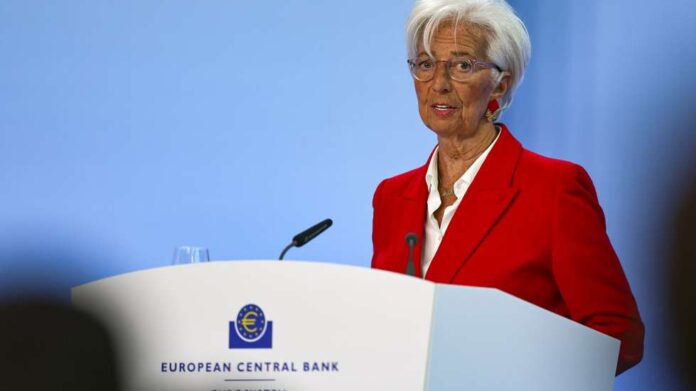The European Central Bank (ECB) kept interest rates unchanged on Thursday, following eight cuts over the past year.
Policymakers decided to pause while the European Union and the United States move closer to a possible trade deal that may reduce uncertainty over tariffs.
The ECB cut its main rate to 2% last month, half of what it was a year earlier, after inflation returned to the bank’s 2% target. With prices expected to stay stable, the bank chose not to make further changes for now.
Talks between Brussels and Washington appear to be in their final stage, with reports pointing to a possible 15% tariff on U.S. imports of EU goods.
ECB President Christine Lagarde said the bank is following the talks closely but does not react to daily developments. She said a trade agreement would lower uncertainty, which would benefit the economy.
Short-term German bond yields rose on Thursday, as markets viewed Lagarde’s comments as a signal that more rate cuts are unlikely in the near future. Some investors also scaled back expectations for further easing next year.
Lagarde said inflation may dip below target in the short term, but projections still show it stabilising around 2% in the medium term. She also noted that supply problems and tariff-related trade disruptions could push prices higher again.
The ECB’s June forecast included a base case assuming 10% U.S. tariffs, which would slow growth and keep inflation below target. A 15% tariff would be in the middle of that baseline and the bank’s more severe scenarios.
Trump has previously threatened tariffs as high as 30%, though the White House has dismissed current reports as speculation.
The euro recently rose to its highest level against the U.S. dollar since September 2021. That has raised concern among some ECB officials, who fear a stronger currency could hurt exports and reduce inflation.
Lagarde said the bank does not target a specific exchange rate but continues to monitor currency movements.
Euro zone companies are seeing modest growth and early signs of recovery, but some firms are starting to feel pressure from tariffs. Loan demand is increasing, and investors remain calm, with equity markets holding near recent highs.
Germany’s rising public spending has also supported market confidence.
Some ECB officials remain cautious. Board member Isabel Schnabel warned that tariffs could increase inflation and said the bar for more rate cuts remains high.
Other policymakers are worried that further euro strength could weaken exports and slow price growth.




